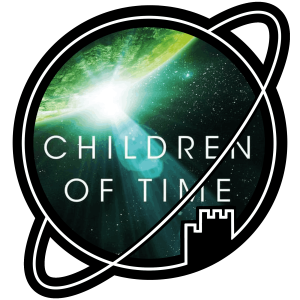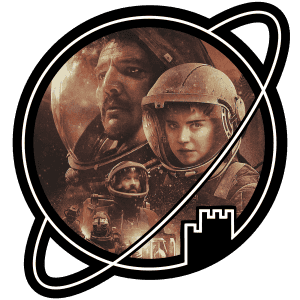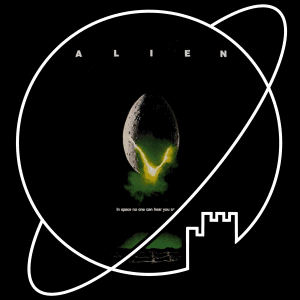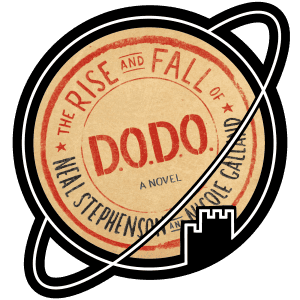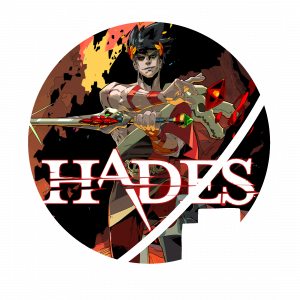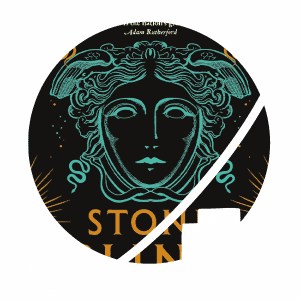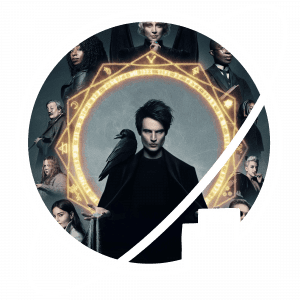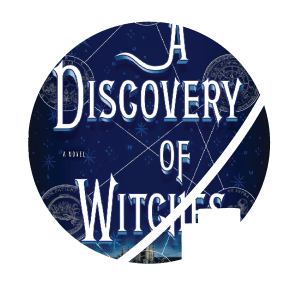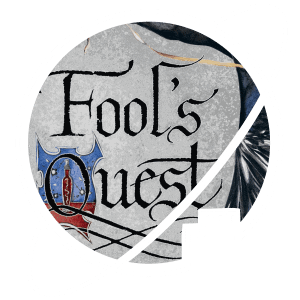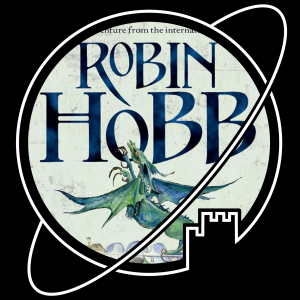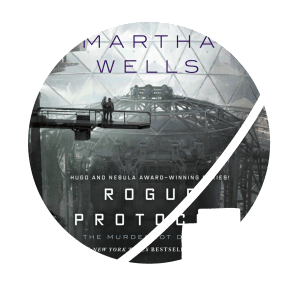Welcome to the Escape Velocity Collection!
We are an opinionated group of friends reviewing all sorts of fantasy and science fiction media. Don’t forget to get to know the curators and visit our curated Collection, where we discuss the stories that never cease to transport us to another world.
Will you escape with us?
LATEST POSTS:
- Novel of three short stories written by Walter M. Miller Jr.
- Published in October 1959
- Followed by Saint Leibowitz and the Wild Horse Woman


Listened to the audiobook with Tom Weiner – very well read.
I love reading old science fiction. When I am looking for a new book to listen to, I often go to Wikipedia’s list of winners of the Hugo Award for Best Novel and see if any of them are available on my audiobook app.
The title of the 1961 winner, A Canticle for Leibowitz, has always stuck with me, though I never bothered to click the link. When it appeared in the app, I dove in blind, loading it into the player straight away.
And I was treated to three great literary post-apocalyptic science fiction short stories! Each of the stories is set several centuries apart, following humanity in general and the abbey of Leibowitz in particular as they progress from pseudo-medieval through pseudo-renaissance into the nuclear age once again. Only when I finished the book did I find out that – as I might have known – they were not originally published together.
The narrative actually flows very well from one story through to the next. Because the story it told in three bursts, the pacing remains high. And while the cast shifts from one story to the next, Miller actually does a great job of limiting the number of different characters in each, allowing the different protagonists to come to life despite the relatively limited length of the story.
The stories are thoughtful, though never overly serious. The world is constructed very carefully through conversation and implication, never letting the world building weigh down the literary core of the story. Each of the three short stories has the right amount of depth and satisfying conclusion, never overstaying its welcome. While they are thematically coherent, I love that they each present a very different picture of the development of the society the abbey is in.
I feel like Miller could have easily written a book in each of those settings, but I actually love that he didn’t and left it at three short stories, a surface just scratched. Enough to be exciting, but not so much that it required detailed explanations or set up. In that sense, A Canticle for Leibowitz reminded me of the – otherwise completely different – Singing Hills Cycle of novellas.
A Canticle for Leibowitz has also withstood the test of time incredibly well. It has relevant themes and a literary style that doesn’t feel 60 years old. The only real reason one feels it could not have been written in the past ten years, is that the cyclical existential threat hanging over the story is not climate change but nuclear war.
Overall, I think A Canticle for Leibowitz deserves to be remembered, up there with the classics of the genre like Starship Troopers or Dune that won the Hugo in the same decade. It is a shame that it is not, but here I am recommending it to you – so go forth and spread the word!
Tagged:
See also:
- Movie directed by Duncan Jones
- Starring Sam Rockwell, Kevin Spacey, Dominique McElligot, and Kaya Scodelario
- Released 12 June 2009
- Runtime: 97 minuts

This is a difficult movie to review without giving away a couple of hints of the plot – so beware of some small spoilers.
Just like when I watched Prospect, I wanted a slower-paced movie to put on while I was doing things with my hands, so I looked for another character-focused low-budget sci-fi project. And while Moon ticks all those boxes, it struggled a bit more to convince me.
The ‘lone crew member on the base/ship’ has been done to death in sci-fi, but it is a trope for a reason: loneliness and fear are powerful emotions. It is also perfect for smaller projects like Moon, because it requires a little less of everything to still have an impact: fewer actors, fewer sets, fewer props.
The problem with stories with this premise having been done so often, is that they start falling into a predictable pattern. I understand there are a couple of deliberate references and throwbacks to other sci-fi movies in here – I feel a lot of 2001: A Space Odyssey, Alien and The Martian in particular – but showing a sci-fi literate audience that you know you’re following in others’ footsteps does not make your movie any more original. A movie about the loneliness of survival in space needs a little extra to make me feel it is worth watching.
In Moon, I get the feeling that the interesting idea to have the main character appear on screen twice is supposed to be that ‘little extra’.
This script might have been written as an acting challenge for Sam Rockwell – he does all of his acting in this movie opposite a video, a prop, or, indeed, himself. Considering, he did a good job and I get that people are impressed with that. But I don’t think it was an Oscar-worthy performance. It is possible another actor could have carried this movie on their own, but Rockwell didn’t draw me in that way.
Because the focus is on Rockwell acting opposite himself, the main mystery of the movie (relatively predictable as it is) is actually revealed rather early on, breaking the tension arc and making the second half of the movie feel like an afterthought.
It is made worse by the fact that the plot is a big tangle of assumptions and just-so stories causing everything to function exactly as the plot demands.
It never made sense to me why Sam Bell had to be at the base in the first place, why he was there alone, why communications with the moon were so difficult, or why Lunar Industries when with the convoluted ploy/deception that is at the core of the lot in the first place.
I could go on, but the bottom line is that this movie was never about the plot. That could be fine, but in this case it left precious basically just Rockwell’s acting as a selling point – and nice as it is, it feels a little meagre.
In conclusion, this movie does some interesting things and looks convincing, but the premise is rather bland and the plot makes no sense. All the interestingness of Sam Rockwell talking to himself could not make up for the fact that Moon was just not that exciting.
If you want to watch a sci-fi movie that is all about intense acting over flashy action, I would rather recommend something like Ex Machina.
You won’t waste an evening if you put on Moon, but I feel like there are better options out there.
- Novel written by Nicole Galland
- Published on 23 February 2021
- Sequel to The Rise and Fall of D.O.D.O.
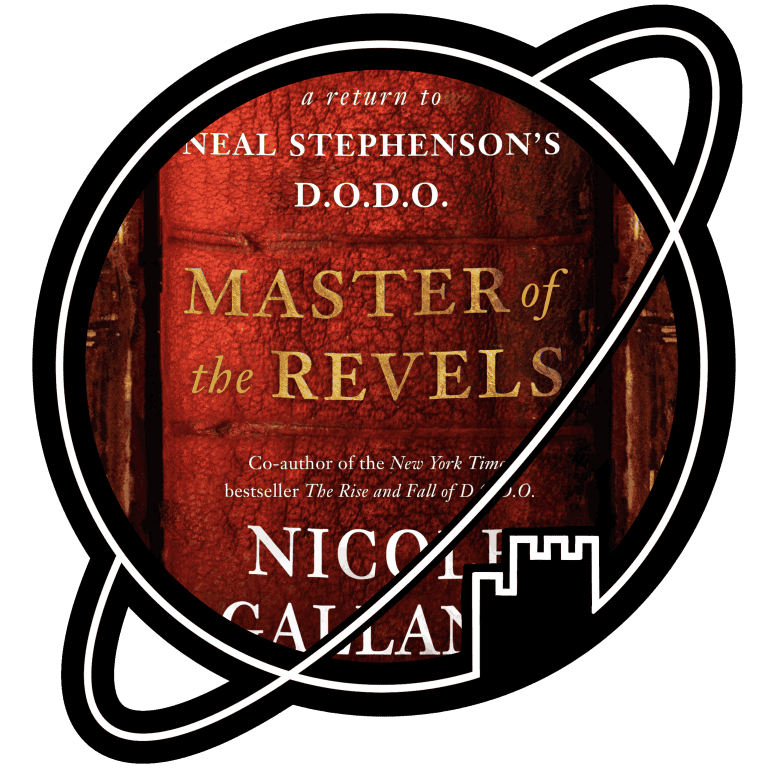

Listened to the full-cast audiobook – well read but not quite as satisfying as it could be due to the narrative structure.
I really liked the crazy premise and surprisingly lucid execution of The Rise and Fall of D.O.D.O. by Nicole Galland and Neal Stephenson, so I figured I’d give the sequel a listen as well.
I did see that Stephenson was no longer on the cover so I knew the focus of the story was going to shift from Stephenson’s sci-fi to Gallant’s historical fiction. On the other hand, Stephenson gave Galland enough of a step-up to continue the story without too much sci-fi input.
It turns out that indeed, Galland focussed on the historical aspects of the story over the present day sci-fi storyline. While I appreciate this makes sense from her perspective, I honestly felt a little let down that what I perceived as the ‘main’ story line after the end of The Rise and Fall of D.O.D.O. (spoiler alert)- the rivalry between our protagonists and Gráinne-controlled D.O.D.O. – is hardly explored.
Rather, Galland uses that rivalry as a backdrop to set up effectively two historical fiction novellas, one set in Roman Sicily, another in the London of William Shakespeare. In both novellas, two opposing time travellers each try to achieve their own ends in a particular place and time without triggering ‘diachronic shear’ (i.e., a change in history to big for the universe to accommodate).
The present-day rivalry between the two organisations, including the role of the mysterious Fugger banking family, is demoted to inciting incident. Unfortunately, I felt that that was exactly where the biggest potential in a sequel was.
Galland’s historical storytelling is still very good. The prose flows well and the pacing is high. I was slightly disappointed by the resolution of certain plot lines, but I felt like that was not where Galland’s focus was.
Instead, I almost feel like this book was written specifically for Shakespeare-nerds, who want to imagine themselves rubbing shoulders with the Bard and his players.
That could have been a cool premise, too, but it felt a bit out of place to me. Most fans of The Rise and Fall of D.O.D.O., myself included, would probably expect an exploration of the effects of rival time travellers attempting to affect the present – and that is just not what Master of the Revels delivers.
Overall, Master of the Revels is a fine book, but it just didn’t offer what I expected or would have wanted. I had no issues finishing it, but I would only recommend it to readers with a real love for historical fiction or Shakespeare, and not so much to readers looking for a follow-up to the interesting sci-fi in The Rise and Fall of D.O.D.O.
Tagged:
See also:
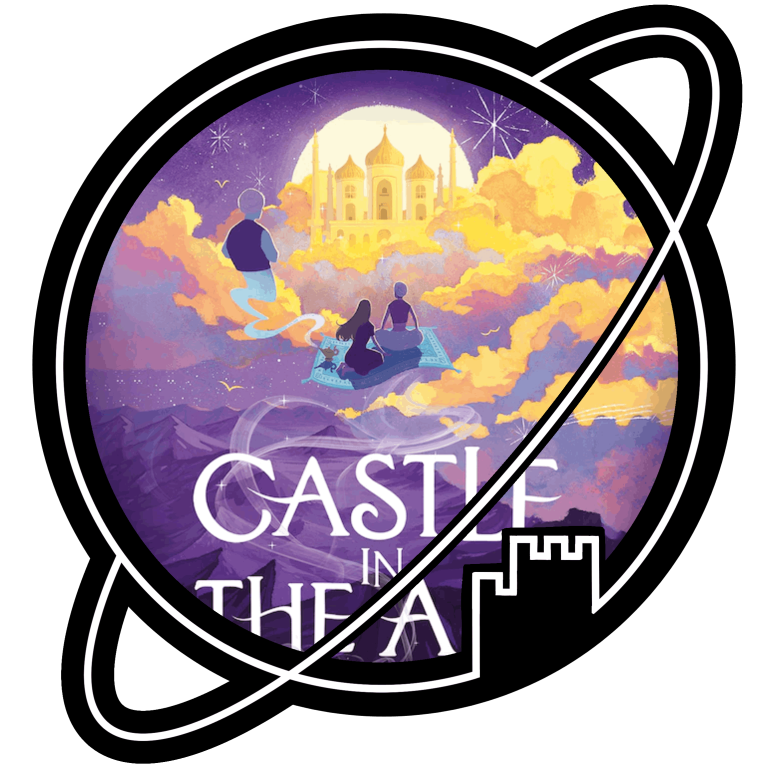

Listened to the audiobook with Kristin Atherton – good narrator.
I’m going picked Castle in the Air to read, I was going through a very busy period at work, which meant that I had relatively little time and energy for reading/listening to books, even on my daily commute. As a result, I wanted to listen to something simple and upbeat. Castle in the Air perfectly fits that description.
Castle in the Air is – for the most part – not particularly original or ambitious, even for a children’s book. The story follows well-worn paths, leaning into classic orientalist ‘1001 nights’-tropes for the start of the story before morphing into the even more familiar quest to rescue the princess. That’s a tale we’ve all heard before, though without giving anything away, the story will offer a few surprises towards the end.
You might be raising an eyebrow now, wondering how an ‘1001 nights’-style story could be a sequel to the decidedly not Arabian Howl’s Moving Castle and you’d be right: the story will go through some twists and turns – and the reader will need some patience – before the connection with the first instalment becomes clear.
(On a side note, you will also need some patience with the characters as they continue wasting a genie’s one-wish-a-day on things that do not help move the plot along one bit… I know of at least one person who couldn’t get over their frustration and failed to finish the book.)
When the connection was finally revealed though, that brought a big smile to my face. And while the story up until that point is not particularly original, it is well executed and entertaining. I was already imagining reading it to my (hypothetical, future) kids and their smiles and giggles at Abdullah’s naïve antics. Am I that old now?
Overall, I think I liked Howl’s Moving Castle a bit better because it surprised me more and because it had more Calcifer in it, but I would happily recommend Castle in the Sky to anyone looking for something simple to get their mind of things or to read to their kids.
Tagged:
See also:
- Novel written by Martha Wells
- Published on 5 May 2020
- Part 5 in the Murderbot Diaries
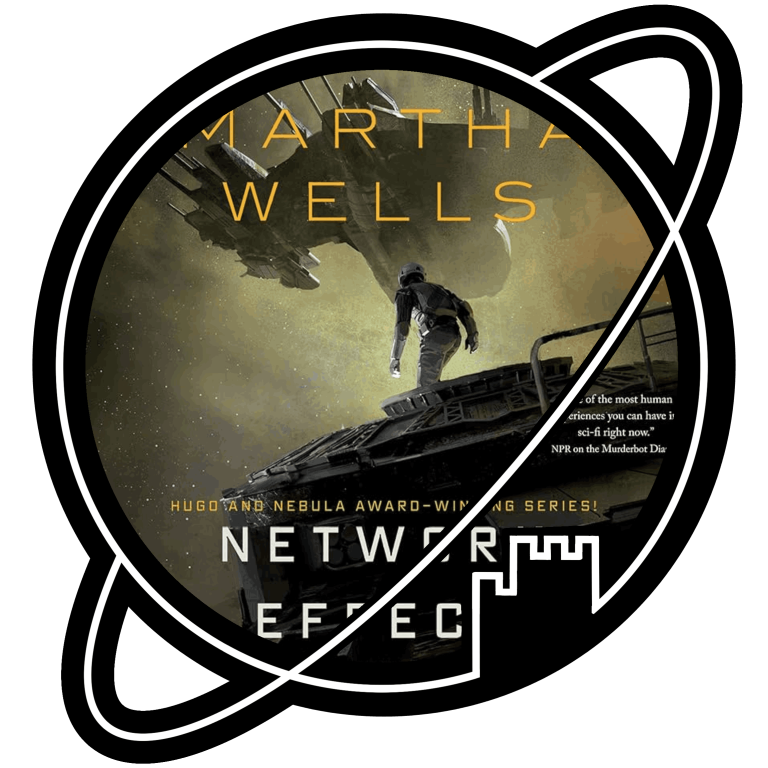

Listened to the audiobook with Kevin R. Free – well read.
I am in a complicated relationship with the Murderbot Diaries – I liked All Systems Red, it is easy to recommend to people because it is light reading and the premise is so good. I also love the idea of telling the story through novellas rather than novels, which is refreshing and makes for nice bite-sized chunks.
At the same time, I found that the action-packed nature of the series means that almost all space Wells has in each novella gets taken up by the plot. What breathing room she has, she uses to develop the Murderbot and its relationship with the humans around them. I understand that choice, but I guess I would have liked Wells to scrape a little of the action scenes to allow just a little more background.
As a result, I have felt that the worldbuilding in the story is a little underwhelming. The novellas have started to feel a little samey, largely because the limits to the Murderbot’s combat- and hacking abilities have never become clear.
I think the Murderbot Diaries contrasts unfavourably with the Singing Hills Cycle of novellas in this respect. In in the Singing Hills Cycle, Nghi Vo manages to subtly flesh out the relevant parts of the world just a bit more in each novella.
So when I saw the next instalment in the Murderbot Diaries was a novel rather than a novella, I allowed the series one more chance to drag me across the line.
I think Network Effect does address some of the issues the series was running into. In particular, I liked that the novel gives Preservation, the home of the Murderbot’s human friends, some time in the lime light. And because Wells takes just a bit more time to introduce them, some of the characters in this novel read as much more three-dimensional than in some of the previous stories.
But Wells does not really go into detail about the limits of what the Murderbot can do, as I really hoped she would. I guess I have to admit now that this is not because she is strapped for space but because she simply doesn’t want to.
So I think Network Effect is, in the end, very similar to the novellas in the series, with the exception that the plot is a bit more elaborate and some of the characters are a bit more developed. Most importantly, it feels less like an extended action sequence and more like a narrative interspersed with action.
I think that Network Effect does take the series to the next level, but it didn’t quite bring what I hoped it would. If you liked the series so far, I think Network Effect is going to fit right in and might even be spectacular. If you’re in the same boat as me… I’m afraid it won’t change how you feel.
Tagged:
See also:
- Novel written by Madeline Miller
- Published on 3 September 2011
- Standalone, though arguably followed by Circe
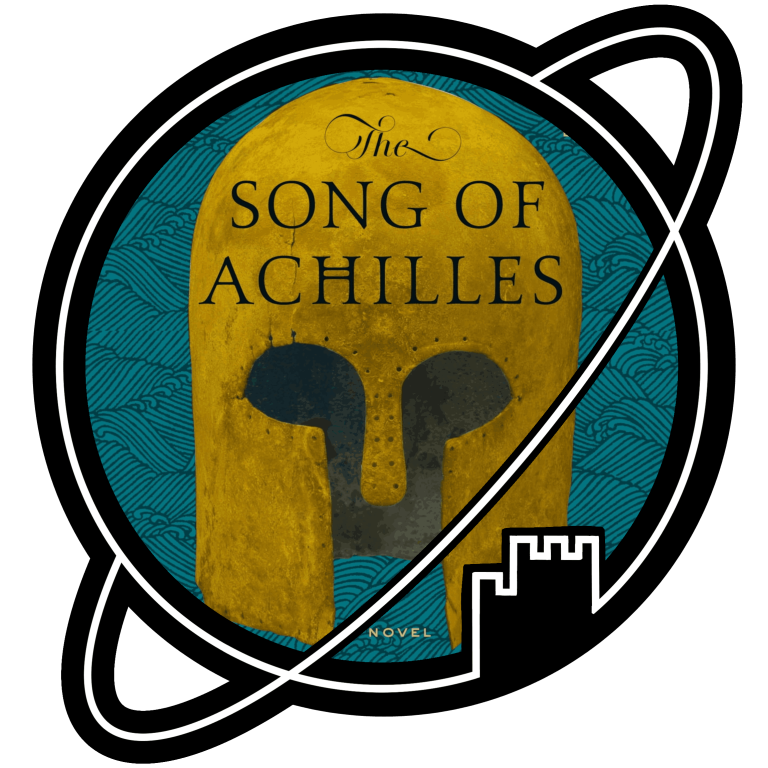

Listened to the audiobook with Frazer Douglas – very well read.
I don’t know about any of you, but I grew up with Greek myths. Some of my children’s books were retellings of those stories. I remember reading a Greek myth encyclopaedia somebody gifted my mum cover to cover. And when I was in high school, I actually learned to translate Homer myself.
As a result, the Iliad is a core story for me. I feel like I know the characters. I know what will happen. I know how it ends.
But that doesn’t mean reading the familiar story again is any less impactful. I feel a story like the Iliad is meant to be told and retold time and again. Miller’s The Song of Achilles fits in the cycle of retelling the ancient story that started in antiquity and is still ongoing today. I feel she respects and follows the origin of the story she retells, while at the same time adding new twists and elements that may be more suited to a modern reader without feeling completely out of place.
Because The Song of Achilles is effectively just another version of one of the world’s most well-know stories, Miller needs to draw us in with her prose, her characterisations, and her variations on well-know themes.
I feel like The Song of Achilles scores best on the style and prose. The novel just feels right, appropriately serious and epic without falling into the formulaic or overly dramatic.
Similarly, I think The Song of Achilles does a good job of fleshing out a couple of characters who hardly get a voice in the original Iliad, with Patroclos and Briseis in particular getting more attention than Homer gave them.
Unfortunately, I don’t really like Miller’s Patroclos. Despite being the stream-of-consciousness narrator of the story, he is surprisingly one-dimensional. Beyond his love for Achilles, there is really very little to him. While I get Miller’s choice to not make Patroclos a warrior, I feel this choice places him effectively on the side lines throughout the story. Patroclos is neither consulted nor respected for most of the story by anyone but Achilles, and I never felt like Patroclos did anything to make him worthy of respect or Achilles’ love. Put a little respectlessly, Miller’s Patroclos doesn’t struggle to be a warrior and fail; he tries ones and gives up. He doesn’t struggle to find a calling in a world that only respects warriors; he simple accepts his place as a second-tier man clinging to a half-god.
When Patroclos’ great act of foolish bravery and sacrifice finally comes round, I felt the only reason I accept it as a reader is because I already knew it was going to happen before I even read the first page. The episode where Patroclos – in this version of the story, accidentally – kills Sarpedon, really drives home how tough it is to marry this verion of the character with the text of the epic.
Fortunately, Patroclos is still mostly likeable – he just feels a little like Achilles’ trophy wife and I would have liked him to achieve something more than being nice and being the subject of Achilles’ love.
Then again, The Song of Achilles, like the Iliad, is the story of Achilles’ wrath first and foremost. And there, she does very well. I think that Miller manages to capture Achilles’ arrogance and entitlement expertly, filteredthrough the biased eyes of Patroclos, who loves Achilles too much to see.
I could go on for a while on how Miller interprets particular characters and events, like her cold-hearted version of Achilles’ mother Thetis. Some of them I like better than others, but I think the fact that I am engaging with Miller’s characters in that way at all shows how well she tapped into the source material.
Overall, I think I would have liked The Song of Achilles a little more if I would have felt stronger about Patroclos, who is, at the end of the day, the lens through which the story is told. But whether you like Patroclos or not, The Song of Achilles is a well-written retelling of the famous story that deserves its place in the long line of retellings and the fans of Greek myth should definitely read for the nostalgia alone.

Review: A Canticle for Leibowitz – Walter M. Miller Jr.
A collection of three short stories set in a post-apocalyptic world, A Canticle for Leibowitz follows the story of the abbey of the Albertian order of Leibowitz. The monks of the order are the guardians of a collection of pre-war scientific texts that their patron saint Leibowitz saved from the chaos and anger following the so called flame deluge. As time progresses, society is rebuilt, the scientific texts are again understood, and humanity falls into old patterns.

Review: Moon – Duncan Jones
Sam Bell is nearing the end of his three-year contract as the single crew member of a mining base on the dark side of the moon. Due to an outage in the communications equipment, he has been unable to contact either his family or his employers live. With only an AI assistant for company, he feels like he is slowly going insane from loneliness. When his lunar rover crashes, however, things take a turn for the worse.
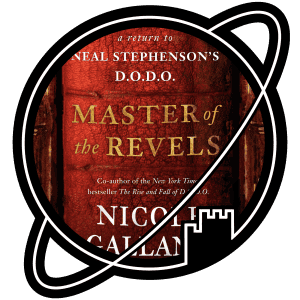
Review: Master of the Revels – Nicole Galland
After their falling out with the powers that be at D.O.D.O., our protagonists set up an independent diachronic operation with the help of the mysterious Fugger banking family – and soon find themselves embroiled in a deadly conflict with the witch Gráinne to save the world’s technology from being retconned out of existence.
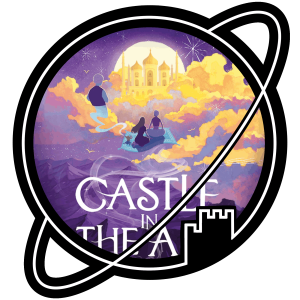
Review: Castle in the Air – Diana Wynne Jones
Abdullah lives a simple life selling carpets from his stand in the bazaar in Zanzib. His main worry is the unwanted attention from his father’s first wife’s relations. Abdullah spends his days daydreaming he were a kidnapped prince from a far-away land, destined to marry a princess. All that is nought but a dream, until one day a strange man comes to the bazaar and sells Abdullah a magic flying carpet. When Abdullah falls asleep on top of the carpet one day, he dreams the strangest, most real dream he has ever dreamed…
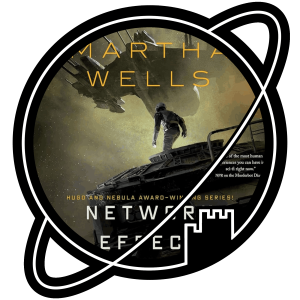
Review: Network Effect – Martha Wells
Part 5 in the Murderbot Diaries – The Murderbot is hired as security for a Preservation survey. When their ship comes under attack from mysterious raiders that appear infected with alien remnants, the Murderbot is shocked to find that the raiders’ transport appears familiar.
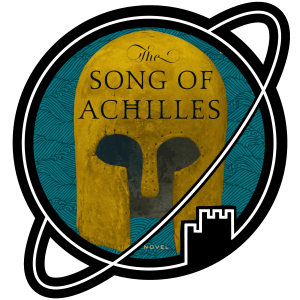
Review: The Song of Achilles – Madeline Miller
Patroclos, exiled as a boy to the court of King Peleus, meets Peleus’ son Achilles. Half god and half man, Achilles is so far above his peers that a gulf seems to exist between him and the other boys his age. When Patroclos crosses that gulf, his fate becomes intertwined with that of the god’s son, and the tragedy all readers will know becomes inevitable.










